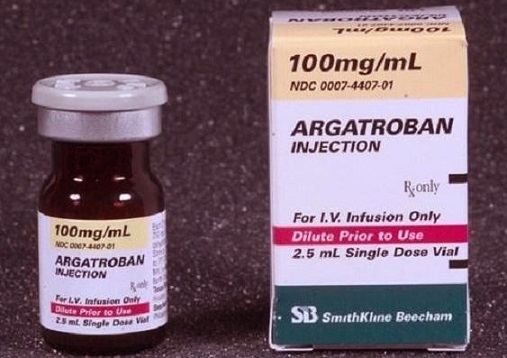Nikhil Prasad Fact checked by:Thailand Medical News Team Jan 12, 2025 11 months, 2 weeks, 6 days, 5 hours, 16 minutes ago
Medical News: As the world continues to grapple with the challenges posed by the COVID-19 pandemic, scientists are looking beyond vaccines and existing antiviral drugs to find innovative solutions. A recent study has identified three FDA-approved drugs - argatroban, glimepiride, and ranolazine - that show significant potential in combating SARS-CoV-2, the virus responsible for COVID-19.
 Drug Repurposing Study Shows New Promise Against SARS-CoV-2
Drug Repurposing Study Shows New Promise Against SARS-CoV-2
These drugs, traditionally used for different medical conditions, could be repurposed to address the ongoing health crisis. Researchers from institutions such as Newgiza University, the University of Texas Southwestern Medical Center, Texas Biomedical Research Institute, and the National Research Centre in Egypt collaborated on this groundbreaking study.
The Urgent Need for Alternative Treatments
The emergence of vaccine-resistant variants underscores the need for additional treatment options. Existing antiviral drugs face challenges, such as resistance due to viral mutations, prompting a shift towards therapies targeting host factors essential for the virus’ lifecycle. This
Medical News report discusses the innovative approach taken by researchers to repurpose existing drugs to block the SARS-CoV-2 entry mechanism.
SARS-CoV-2 uses its spike protein to bind to the human ACE2 receptor, facilitating viral entry into cells. Targeting this interaction has become a promising avenue for drug development. By repurposing FDA-approved drugs, researchers aimed to discover cost-effective and readily available treatments that could provide immediate relief to patients.
Study Methodology
The study employed a combination of computational and experimental approaches. Researchers began by screening a library of FDA-approved drugs using molecular docking simulations. This computational method identifies drugs that could potentially bind to the spike-ACE2 interface, thereby inhibiting the virus’ entry into human cells. From an initial pool of 2,500 drugs, the team shortlisted 19 candidates based on their docking scores and safety profiles.
These 19 drugs were further evaluated using a specialized assay that measures the ability of drugs to disrupt the binding between the SARS-CoV-2 spike protein and the ACE2 receptor. Five drugs showed significant inhibitory effects, but only three - argatroban, glimepiride, and ranolazine - demonstrated strong antiviral activity without harming cells.
Key Findings
Each of the three drugs exhibited unique mechanisms of action against SARS-CoV-2:
-Argatroban: Originally an anticoagulant used to treat blood clots, argatroban displayed potent virucidal effects. It directly neutralized the virus and, to a lesser extent, inhibited its adsorption and replication. With an IC50 (inhibitory concentration) of 20 μM and a high selectivity index of 95, argatroban emerged as a promising candidate.
-Glimepiride:
/>
Commonly prescribed for diabetes, glimepiride primarily inhibited viral replication. It also showed moderate effects in blocking viral entry. The study found that glimepiride’s dual mechanism - targeting both viral enzymes and the ACE2 receptor - could make it a versatile antiviral agent. Its IC50 of 47 μM and selectivity index of 61 highlight its potential.
-Ranolazine: Used for managing chronic angina, ranolazine mainly impeded viral adsorption onto host cells. Its IC50 of 300 μM and selectivity index of 10 suggest moderate potency, but its safety profile and dual benefits as an antiviral and cardiovascular treatment make it an intriguing option.
Potential Clinical Applications
The study’s findings have significant implications for the management of COVID-19. By targeting the ACE2 receptor, these drugs could be used to prevent viral entry into cells, offering a novel approach to treatment. Additionally, their existing FDA approval means that their safety profiles are well-documented, allowing for faster clinical trials and regulatory approval.
Argatroban could be particularly beneficial for COVID-19 patients with coagulopathies, a common complication of the disease. Its dual role as an antiviral and anticoagulant makes it a valuable tool in managing severe cases. Glimepiride’s ability to inhibit viral replication could complement other treatments, while ranolazine’s cardiovascular benefits make it suitable for patients with COVID-19-related arrhythmias.
Challenges and Considerations
While the study highlights the potential of these drugs, several challenges remain. The antiviral IC50 values of all three drugs are higher than their therapeutic plasma concentrations for existing indications. This discrepancy suggests the need for dose optimization or alternative delivery methods. Researchers propose pulmonary delivery via aerosols to enhance drug concentration in the lungs while minimizing systemic side effects.
Additionally, combining these drugs with existing COVID-19 treatments could enhance their efficacy. However, careful consideration of potential drug interactions is essential. For example, ranolazine’s known interactions with antiviral drugs like ritonavir necessitate caution in combination therapies.
Conclusions
The identification of argatroban, glimepiride, and ranolazine as potential treatments for COVID-19 marks a significant step forward in the fight against the pandemic. By targeting the ACE2 receptor, these drugs offer a novel mechanism to inhibit SARS-CoV-2. Their existing FDA approval and known safety profiles expedite their potential transition to clinical use.
However, further research is needed to validate these findings in vivo and optimize dosing regimens. Clinical trials will be crucial to assess their efficacy, safety, and potential for combination therapies. Reformulation strategies, such as aerosol delivery, could enhance their effectiveness and minimize side effects.
The study underscores the value of drug repurposing as a cost-effective and time-efficient approach to addressing urgent healthcare challenges. By leveraging existing drugs, researchers can bypass the lengthy process of new drug development, bringing hope to millions affected by COVID-19.
The study findings were published in the peer-reviewed journal: Heliyon.
https://www.sciencedirect.com/science/article/pii/S2405844025002749
For the latest COVID-19 News, keep on logging to Thailand
Medical News.
Read Also:
https://www.thailandmedical.news/news/sulodexide-effectively-mitigates-thromboinflammation-and-endothelial-damage-reducing-risks-associated-with-long-covid
https://www.thailandmedical.news/news/favipiravir-that-was-used-to-treat-covid-19-actually-causes-lung-inflammation-lung-damage-and-lung-fibrosis
https://www.thailandmedical.news/news/japanese-study-finds-that-the-flavors-and-fragrance-extracts-of-cinnamon-and-mint-can-protect-against-covid-19
https://www.thailandmedical.news/articles/coronavirus
